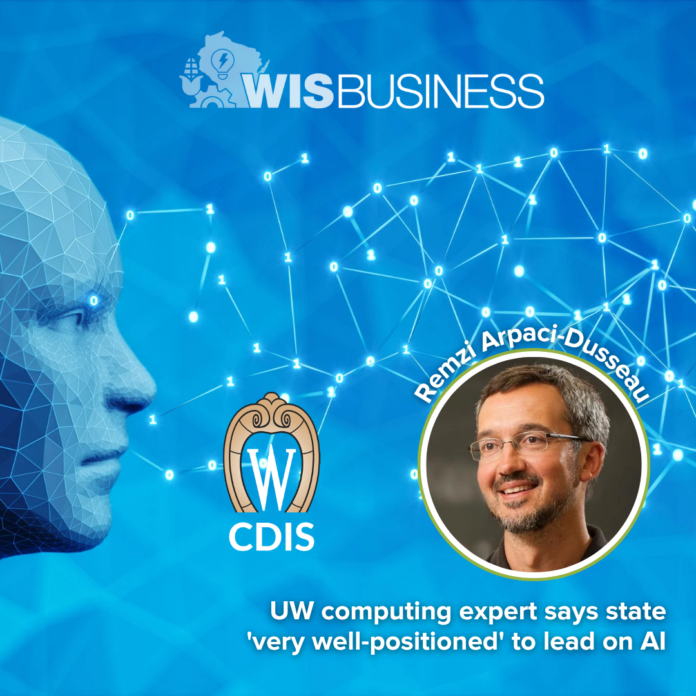The head of UW-Madison’s School of Computer, Data & Information Sciences says Wisconsin is “very well-positioned to be a leader” in AI development.
Remzi Arpaci-Dusseau, a professor in the university’s Computer Sciences Department and a special advisor to the Provost on computing, spoke yesterday during a meeting of the Madison Rotary Club. He discussed the rapid evolution of AI and how UW-Madison can leverage its expertise across various disciplines to play a role in that process.
“We have a great history of innovation and putting innovation into practice in the industry,” he said. “We have a strong group of people that do machine learning, which is kind of at the heart of AI, and that’s across departments. We have strong people who build systems and put what they do into practice.”
Arpaci-Dusseau noted large corporations such as Google and OpenAI are pouring billions of dollars into AI development, “but there is more innovation to be had and we should be a part of that.”
He also weighed in on how AI will impact jobs in computer science, noting he doesn’t agree with the notion that the technology will entirely replace positions in this field. While AI tools are helping people program things faster than they used to, they’re fundamentally not “deeply intelligent,” he said.
“People are trying to see, like, how much do the tools replace junior people? … I think it’s very short-sighted to think that’s a good thing to do,” he said.
While many of the school’s computer science graduates go work for “core industries” around AI, pointing to companies like Google, he added they’re increasingly being hired by other businesses across other sectors.
“Because what modern company isn’t a technology company in some way?” he said.
He also referenced an ongoing effort to launch a new college focused on computing at UW-Madison, which university leadership is currently considering. Along with helping other key disciplines such as medicine, law, engineering, and agriculture adapt to the AI-driven tech transformation, he also pointed to possible efforts in the public policy space.
“We should be thinking about how should we shape public policy in order to make sure that all of this technology lands on all of us in a way that’s good for all of us, and not good for just a few,” he said.
Watch the video and see an earlier related story.







